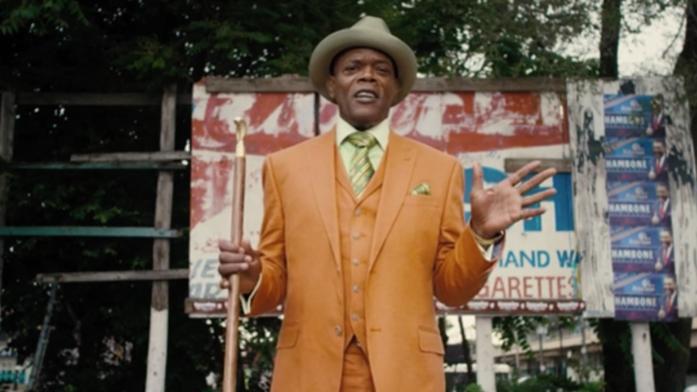Spike Lee’s Chi-Raq, a modernized telling of Lysistrata, will open at FilmScene on Friday.
By Girindra Selleck
Spike Lee’s Chi-Raq, a modern-day adaptation of Lysistrata as a reimagining of Aristophanes’ classic Greek play on the gang-infested streets of South Side Chicago, couldn’t have come at a more fitting time. The film’s lofty aspirations, though not always met, are bolstered by — and even entrenched in — recurring references to the senseless killings of black youth on Chicago’s and countless other cities’ streets.
Chi-Raq was released nationwide after yet another scandal involving the killing of a black teenager by a white police officer. Laquan McDonald, 17, was shot and killed last year, during the time Chi-Raq was being filmed, but because the molasses-like bureaucracy of a city whose selectively neglectful justice system ensured things were kept quiet, the public knew nothing for sure until just over a week ago.
[youtube id=”rGTuuj-aTJs” mode=”normal” autoplay=”yes”]
In Chi-Raq, guns and bullets assume the roles of principal actors. The rest of the cast is merely supporting. Lee quickly makes it clear — with the death of one character’s daughter at the hands of a stray bullet — that it doesn’t matter who is behind the trigger, be it cop, gangster, or concerned civilian. Rather, it is the culture of Chicago that is to blame for these innocent children’s deaths. The film, spoken in verse and complete with the Greek chorus-like narration of Samuel L. Jackson, fuses conventional aspects of ancient comedy, large-scale musical numbers, and dance choreography with pointed commentary on current events. In doing so, Lee crafts what might be his most ambitious project since Do the Right Thing.
The film’s complex tapestry includes a justified enmeshment between two of America’s most pressing social (human) issues: racism and gun violence. The opening shot is of a U.S. map in which the familiar shapes created by the state and county lines are replaced by a heaping pile of assault rifles and handguns decorated in red, white, and blue. The next shot is a map of Chicago comprising the many neighborhood’s names painted in large block letters. They read Cabrini Green, Englewood, O Block, and the viewer can’t help but think of the institutionally oppressive redistricting lines so symptomatic of the city’s deep-rooted racial problems.
The film follows Lysistrata (Teyonah Parris) as she tries to stop the war between the city’s two most violent gangs, the Trojans and the Spartans. Her plan involves a ploy to recruit all of the city’s women and convince them to withhold sex from their boyfriends, husbands, and lovers until peace has been achieved. This aspect of the plot is taken directly from Aristophanes, but in the film, the inspiration is credited to Leymah Gbowee, a Liberian activist who successfully organized a similar sex strike with the women of Liberia and helped to end the country’s second civil war.
Numerous A-list actors make appearances (Jennifer Hudson as a grieving mother, Nick Cannon as rapper and gang-leader Chi-Raq, John Cusack as a local pastor, and Jackson as the aforementioned narrator) but the acting takes a back seat to the spectacle, save one brilliant scene in which Cusack delivers an extended monologue on the death of a local girl and the insidious culture that brought it upon her.
Chi-Raq is an unabashed and explicit social commentary, at times to a fault. The characters often deliver their monologues directly into the camera in an almost too-obvious call to action. The constant referencing of the myriad shootings of the last three years keeps the viewer in reality, unable to fully become immersed in the narrative. While they weave a largely rational argument unable to be ignored, it has the effect of making the film feel somewhat devoid of emotional depth.
The film culminates in an all-too-neat resolution that would (justifiably) make one-time UI guest lecturer and today’s foremost public voice on race Ta-Nehisi Coates cringe. Though Lee cannot be faulted for sticking to the original play’s scripted resolution, the ending nonetheless instills a false sense of achievement in the viewer, when in fact, the film’s actual problems could not be further from resolved.
It is all of our duties to be aware of these issues, and in the spectacle of Chi-Raq, Lee manages to create a conduit through which to speak of them to even the most stubborn of viewers.
Girindra Selleck will discuss Chi-Raq on Bijou Banter (89.7 FM) at 4:30 p.m.Friday with members of the University of Iowa’s Ph.D. program in cinema studies.



